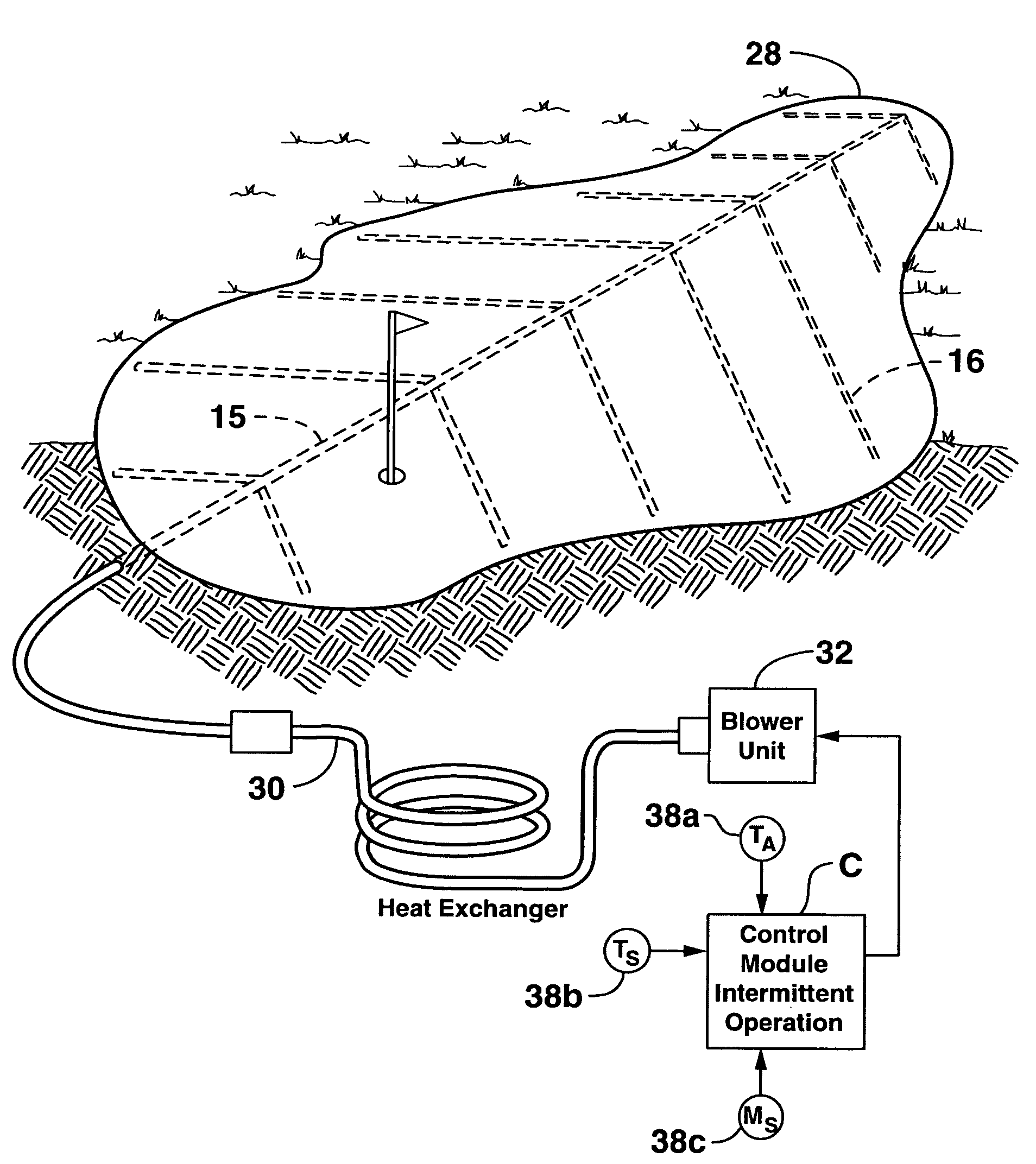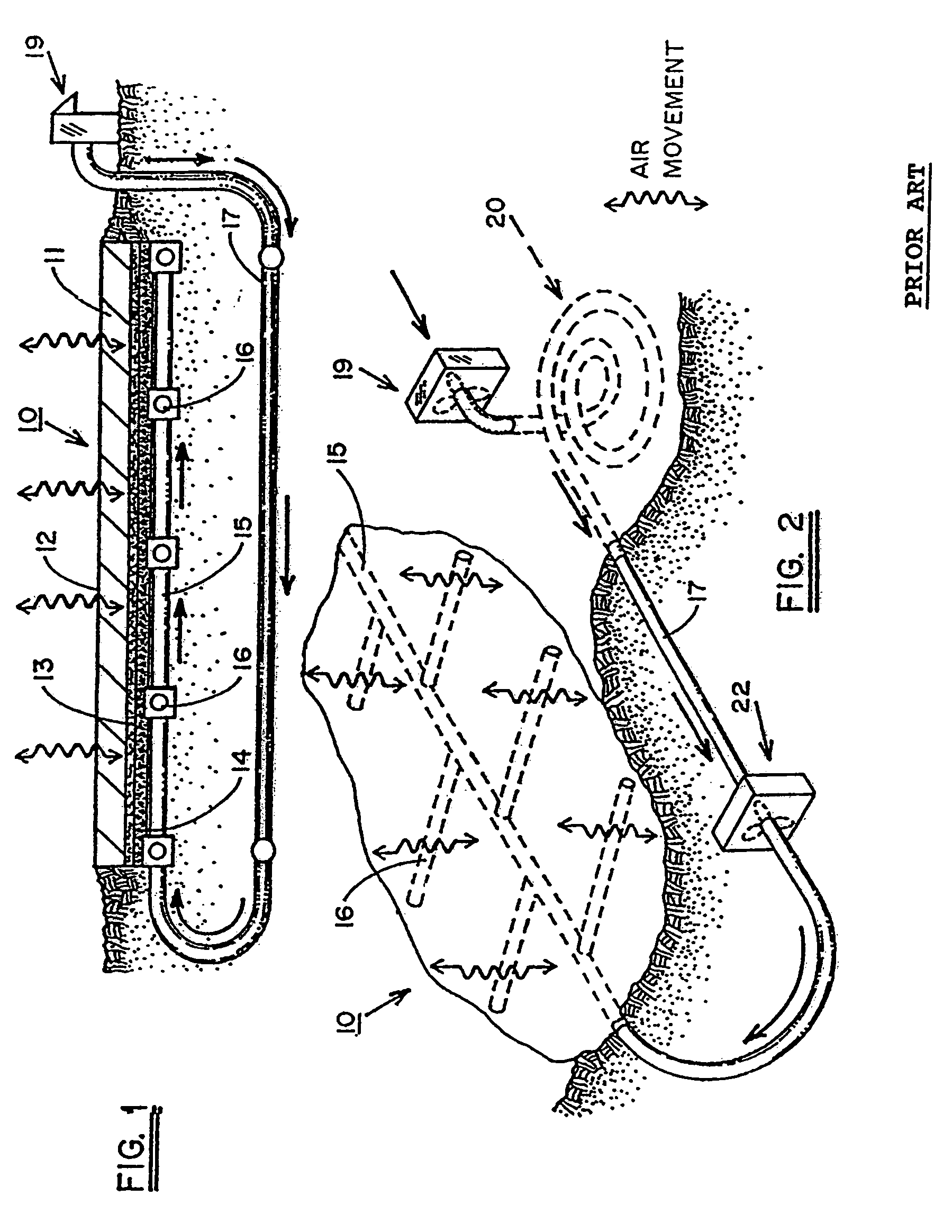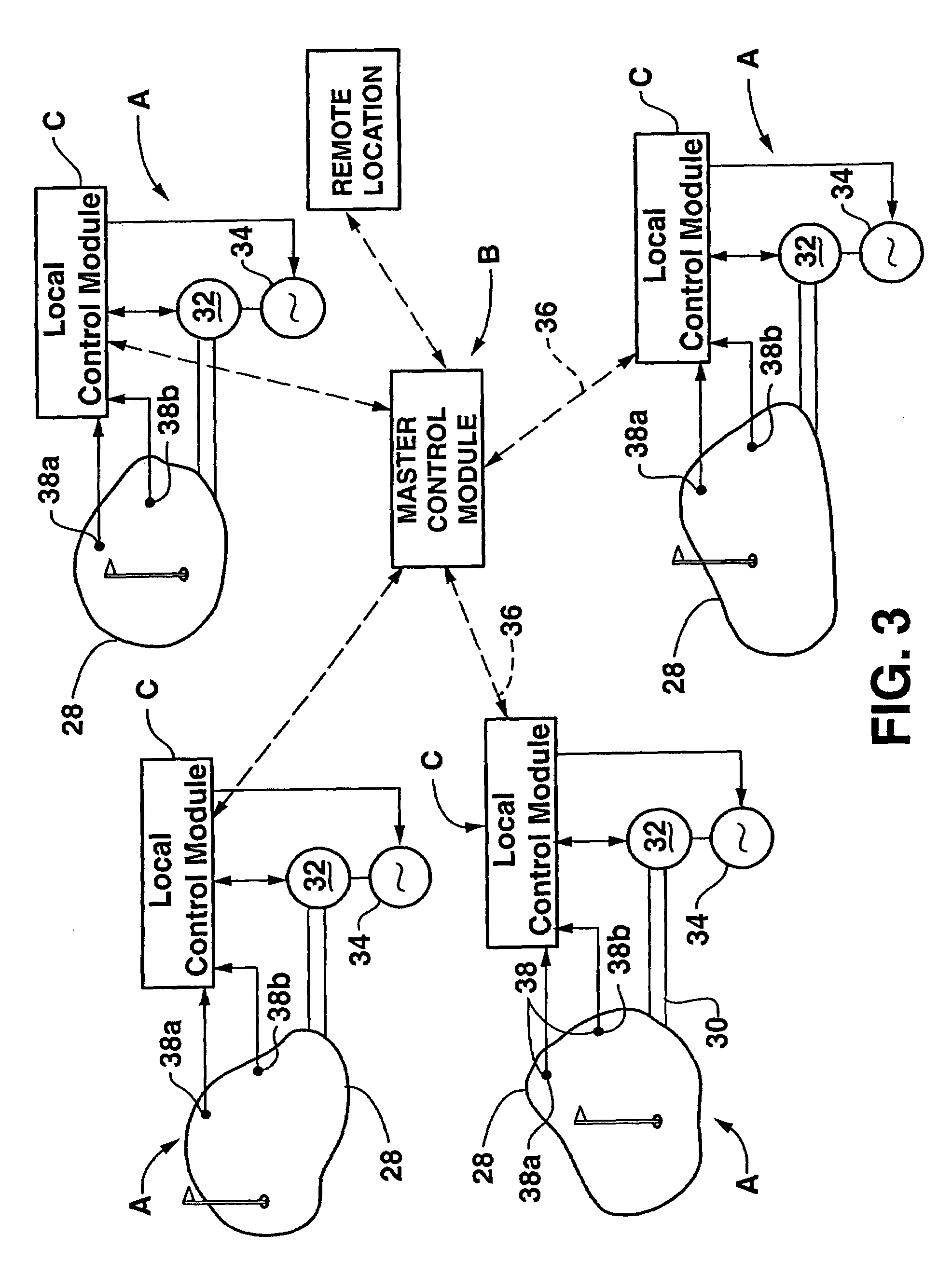Golf course turf conditioning control system and method
a control system and golf course technology, applied in the direction of functional valve types, roads, ground pavings, etc., can solve the problems of affecting the degree to which manual operation can be automated, severe damage to turf parts, and damage to turf, so as to reduce or increase the temperature of turf
- Summary
- Abstract
- Description
- Claims
- Application Information
AI Technical Summary
Benefits of technology
Problems solved by technology
Method used
Image
Examples
Embodiment Construction
[0035]The systems and methods according to the present invention are useful in managing the operation of aeration subsystems at a plurality of locations, for example areas having different requirements from one another. Different areas on a golf course can have differences in many features, such as in topography, in elevation, in exposure to the sun, and in other features such as water table level, or being subject to wind. For example, a first green is surrounded by a water hazard (for example, a green situated on an island surrounded by water and accessible by a footbridge or golf cart path); a second green is surrounded by sand traps; a third green is exposed to full sun for much or all of a day; and a fourth green is surrounded by trees that shade the green from direct sunlight for a considerable part of the day. Different greens may have different soil conditions and / or different elevations, some may be sloped or terraced; and some may be subject to other unique conditions, suc...
PUM
 Login to View More
Login to View More Abstract
Description
Claims
Application Information
 Login to View More
Login to View More - R&D
- Intellectual Property
- Life Sciences
- Materials
- Tech Scout
- Unparalleled Data Quality
- Higher Quality Content
- 60% Fewer Hallucinations
Browse by: Latest US Patents, China's latest patents, Technical Efficacy Thesaurus, Application Domain, Technology Topic, Popular Technical Reports.
© 2025 PatSnap. All rights reserved.Legal|Privacy policy|Modern Slavery Act Transparency Statement|Sitemap|About US| Contact US: help@patsnap.com



